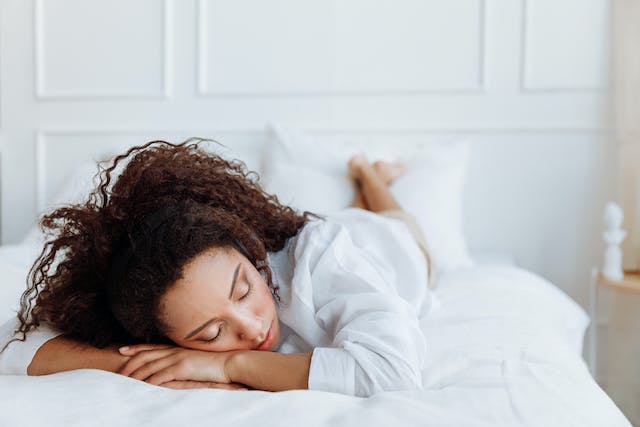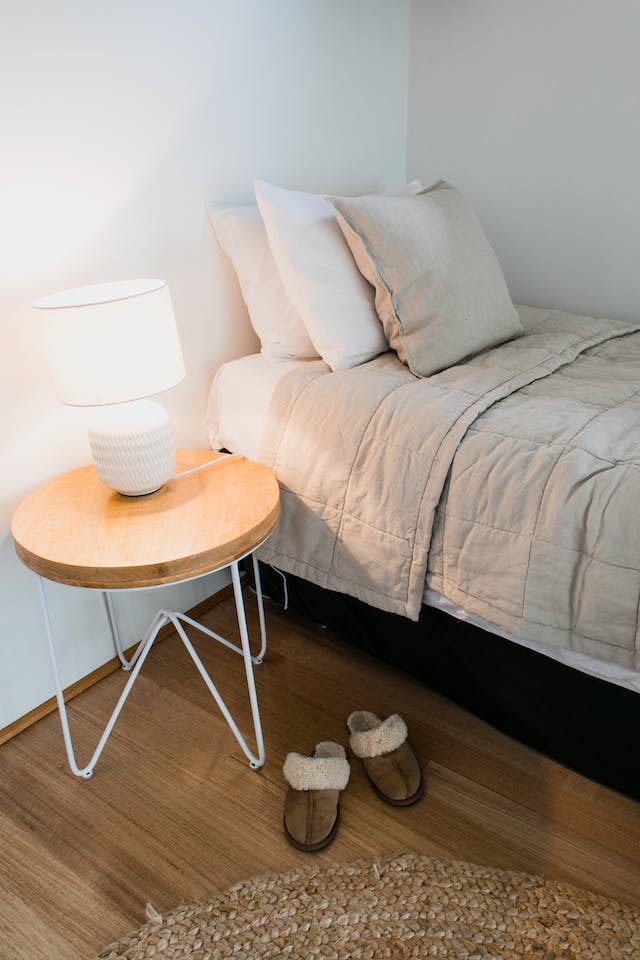
Conquer Sleep Anxiety for Peaceful Nights.
Anxiety related to sleep can be a dangerous enemy that keeps you up at night and wears you out during the day. We’ll examine the causes of sleep anxiety in this tutorial, along with practical methods for regaining restful sleep(Sleep Anxiety Solutions)
Identify and Address Stressors.
Stress is one of the main causes of sleep anxiety. Determine the sources of stress in your life, including those that are personal, professional, or environmental. You may dramatically lower anxiety levels and create a more conducive environment for healthy sleep by addressing and controlling these stressors.
Establish a Relaxing Bedtime Routine.
Establishing a nightly schedule lets your body know when it’s time to relax. Include relaxing things in your routine, such taking a warm bath, reading a book, or practicing mindfulness. To achieve consistency, try to stick to the schedule every night.https://www.healthline.com/health/mental-health/tools-and-tricks-to-calm-your-anxiety-and-actually-get-some-sleep
Create a Comfortable Sleep Environment.
Transform your bedroom into a peaceful haven. Choose cozy bedding, maintain a cool, dark atmosphere, and turn off any annoying noises. Investing in high-quality pillows and mattresses can also have a big impact on how well you sleep.https://www.health.harvard.edu/mind-and-mood/tips-for-beating-anxiety-to-get-a-better-nights-sleep

Limit Stimulants Before Bed.
Electronic devices and caffeine can seriously interfere with your capacity to relax. Steer clear of stimulants in the hours before bed, and set up a “screen curfew” to reduce blue light exposure, which can disrupt your body’s melatonin production, the hormone that promotes sleep.

Practice Relaxation Techniques.
Include relaxation methods in your bedtime routine. Progressive muscle relaxation, guided imagery, and deep breathing techniques can all help you de-stress and relax. Try out a variety of techniques to see which one suits you best.https://www.health.com/sleep-anxiety-8362633
Cognitive Behavioral Therapy for Insomnia (CBT-I).
Treating sleep disorders, including anxiety related to sleep, can be effectively achieved with the use of CBT-I. You can improve the quality of your sleep by recognizing and altering the harmful thought patterns and behaviors that fuel your anxiety by working with a qualified therapist.
Mindfulness Meditation for Sleep.
Using mindfulness meditation to treat sleep anxiety can be very effective. Your thoughts will stop racing and you will feel more at ease, which will help you fall asleep. All it takes is bringing your attention to the present moment and practicing nonjudgmental awareness.

Stay Active During the Day.
Frequent exercise has many positive effects on mental health, one of which is better sleep. Moderate exercise is a good idea during the day; however, stay away from intense workouts right before bed as they might have the opposite effect.https://my.clevelandclinic.org/health/diseases/21543-sleep-anxiety
Consult a Professional.
Seeing a medical expert could be helpful if your attempts to manage your sleep anxiety are unsuccessful. To help address your unique needs, a physician or sleep specialist can help identify underlying issues and create a customized treatment plan.
To sum up, treating sleep anxiety requires a comprehensive strategy that takes care of the underlying issues, adopts good habits, and, when necessary, seeks professional help. You can create the conditions for restful nights and wake up feeling renewed by putting these strategies into practice.https://www.healthshots.com/preventive-care/self-care/tips-to-deal-with-sleep-anxiety/

